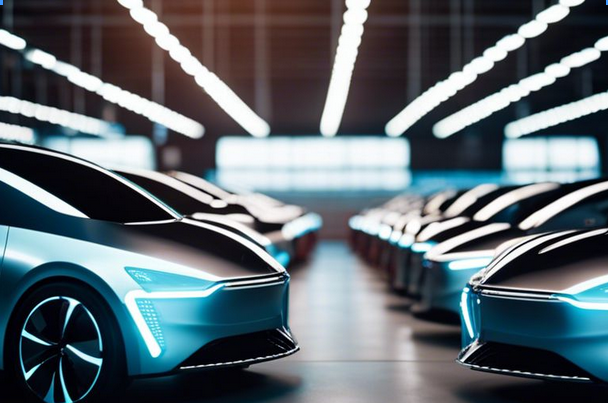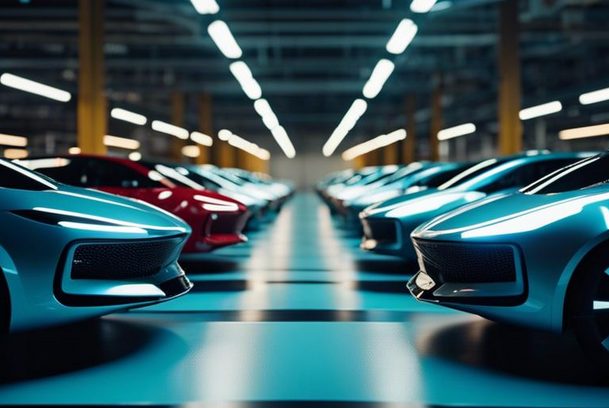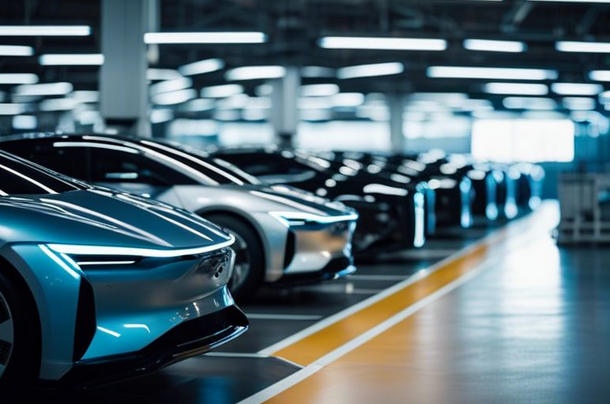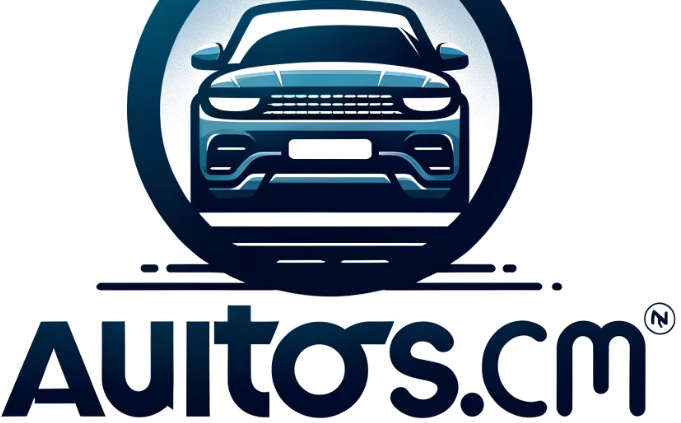With technological advancements rapidly changing the landscape of the auto industry, the future holds exciting possibilities. From the rise of electric vehicles like the Volkswagen ID.4 to the development of self-driving cars, we are on the cusp of a significant transformation. Innovations in connectivity, safety features, and sustainability are shaping the vehicles of tomorrow, promising safer, more efficient, and environmentally friendly modes of transportation. As we research into the possibilities that lie ahead, it’s clear that technology will continue to revolutionize the way we drive, paving the way for a more sustainable and innovative future.
Evolution of Automotive Technologies

Historical Milestones
While the automotive industry has been around for over a century, the evolution of automotive technologies has been nothing short of remarkable. The development of the internal combustion engine in the late 19th century paved the way for the mass production of automobiles, forever changing the way we travel.
Current Trends and Innovations
To keep up with the demands of modern-day consumers, the auto industry is constantly innovating. From the rise of electric vehicles to the integration of advanced driver-assistance systems (ADAS) and autonomous technology, the current trends in automotive technologies are shaping the future of transportation.
For instance, the shift towards electric vehicles is not only driven by the need for sustainable transportation but also by the advancements in battery technology. The development of high-capacity batteries has allowed automakers to produce electric vehicles that can travel longer distances on a single charge, making them a viable option for everyday consumers.

Electrification of Vehicles
Some technological advancements have paved the way for a significant shift in the auto industry, especially with the rise of electric vehicles (EVs). To dive deeper into the impact of technology on the automotive industry, you can read the article on The Impact of Technology On The Automotive Industry.
Electric Vehicles (EVs) and Their Impact
Electrification of vehicles has not only reduced greenhouse gas emissions and minimized the dependence on fossil fuels but has also led to a surge in technological developments. The shift towards EVs is transforming the auto industry by promoting sustainability and innovation in transportation.
Charging Infrastructure and Battery Technology
Vehicles powered by electricity require a robust charging infrastructure and efficient battery technology to support their widespread adoption. The development of fast-charging stations and next-generation batteries is crucial for the success of electric vehicles in the market.
Impact:
Efficient charging infrastructure and advancements in battery technology are necessary for addressing range anxiety and improving the overall consumer experience with electric vehicles. Investments in charging networks and research on high-capacity batteries are key elements that can accelerate the electrification of the auto industry.

Autonomous and Connected Vehicles

The Rise of Self-Driving Cars
On the cusp of a technological revolution, self-driving cars are poised to drastically change the landscape of transportation. Assuming various levels of autonomy, these vehicles rely on advanced sensors, artificial intelligence, and machine learning algorithms to navigate roads with minimal human intervention. The implementation of self-driving cars has the potential to significantly reduce accidents, enhance traffic flow, and offer greater mobility to individuals with disabilities or limitations.
Connectivity: Enhancing Communication and Safety
Any discussion about the future of the auto industry is incomplete without addressing the role of connectivity in vehicles. With the advent of connected vehicles, cars can communicate with each other, infrastructure, and external networks in real-time. This opens up possibilities for advanced safety features, such as collision avoidance systems, predictive maintenance alerts, and traffic optimization. The integration of 5G networks further amplifies the potential for seamless communication between vehicles, leading to a more efficient and safer driving experience.
The integration of connectivity in vehicles not only enhances safety but also elevates the overall driving experience. By enabling cars to communicate with each other and with the surrounding infrastructure, drivers can receive real-time updates on road conditions, weather, and potential hazards. This level of communication not only fosters safer driving practices but also paves the way for a more connected and efficient transportation system.

Manufacturing Innovations
Despite Technological Advancements in The Automotive Industry Shaping the Future, the manufacturing sector has seen profound changes in recent years.
Robotics and Automation in Production
Innovations in robotics and automation have transformed the production process in the auto industry. Robots are now adept at handling intricate tasks with speed and precision, leading to increased efficiency and quality control. With automation, manufacturers can streamline operations, reduce human errors, and optimize workflows.
Advanced Materials and 3D Printing
Advanced materials and 3D printing are revolutionizing the way vehicles are designed and produced. These technologies enable the creation of complex geometries and lightweight components that enhance performance and fuel efficiency. The use of innovative materials like carbon fiber and titanium alloys is making cars stronger and safer than ever before.
Advanced Materials:
| C Fiber | Lightweight and incredibly strong |
| Titanium Alloys | High strength-to-weight ratio |
3D Printing:
| Complex Geometries | Allows for intricate designs |
| Customization | Personalized components for customers |
The integration of advanced materials and 3D printing is reshaping the auto industry by pushing boundaries and unlocking new possibilities. These technologies are not just changing how vehicles are made but also setting the stage for the future of transportation.
Environmental and Regulatory Impacts

Emission Standards and Green Technology
With the global focus on reducing carbon footprint and combating climate change, emission standards have become stricter, pushing auto manufacturers to develop and implement green technologies. These advancements include hybrid and electric vehicles, hydrogen fuel cells, and more efficient internal combustion engines. Such technologies not only help in meeting regulatory requirements but also contribute to a cleaner and more sustainable environment.
The Role of Governments in Shaping the Future of Autos
Role of governments is pivotal in steering the auto industry towards a more sustainable future. Through regulations, incentives, and investments in infrastructure, governments play a significant role in promoting the adoption of green technologies and shaping the direction of the industry. Policies such as tax credits for electric vehicles, fuel economy standards, and funding for research and development are crucial in driving innovation and fostering a shift towards environmentally friendly transportation solutions.
Impacts: Governments have the power to accelerate the adoption of sustainable practices within the auto industry, leading to a reduction in harmful emissions and promoting the development of innovative technologies. By setting stringent regulations and offering incentives for green initiatives, governments are driving positive change and encouraging manufacturers to prioritize environmental sustainability in their operations.
Conclusion
So, it is evident that technological advancements have the potential to revolutionize the auto industry. With innovations in electric vehicles, autonomous driving technology, and connectivity features, the automotive landscape is rapidly evolving. These advancements not only provide more efficient and sustainable transportation options but also enhance the overall driving experience for consumers. As technology continues to advance, the auto industry is poised to undergo significant transformations, paving the way for a more innovative and interconnected future.
FAQ
Q: How can technological advancements revolutionize the auto industry?
A: Technological advancements such as autonomous driving, electric vehicles, and connected car technology are set to revolutionize the auto industry. These advancements can improve safety, reduce environmental impact, and enhance the overall driving experience for consumers.
Q: What is the impact of autonomous driving on the auto industry?
A: Autonomous driving technology has the potential to transform the auto industry by increasing road safety, reducing accidents caused by human error, and improving traffic flow. This technology is expected to revolutionize transportation by enabling self-driving cars to navigate roads with little to no human intervention.
Q: How are electric vehicles changing the landscape of the auto industry?
A: Electric vehicles (EVs) are reshaping the auto industry by offering a more sustainable and environmentally-friendly alternative to traditional gasoline-powered vehicles. The growing demand for EVs has prompted automakers to invest heavily in developing electric models, leading to advancements in battery technology and infrastructure to support the widespread adoption of electric vehicles.
